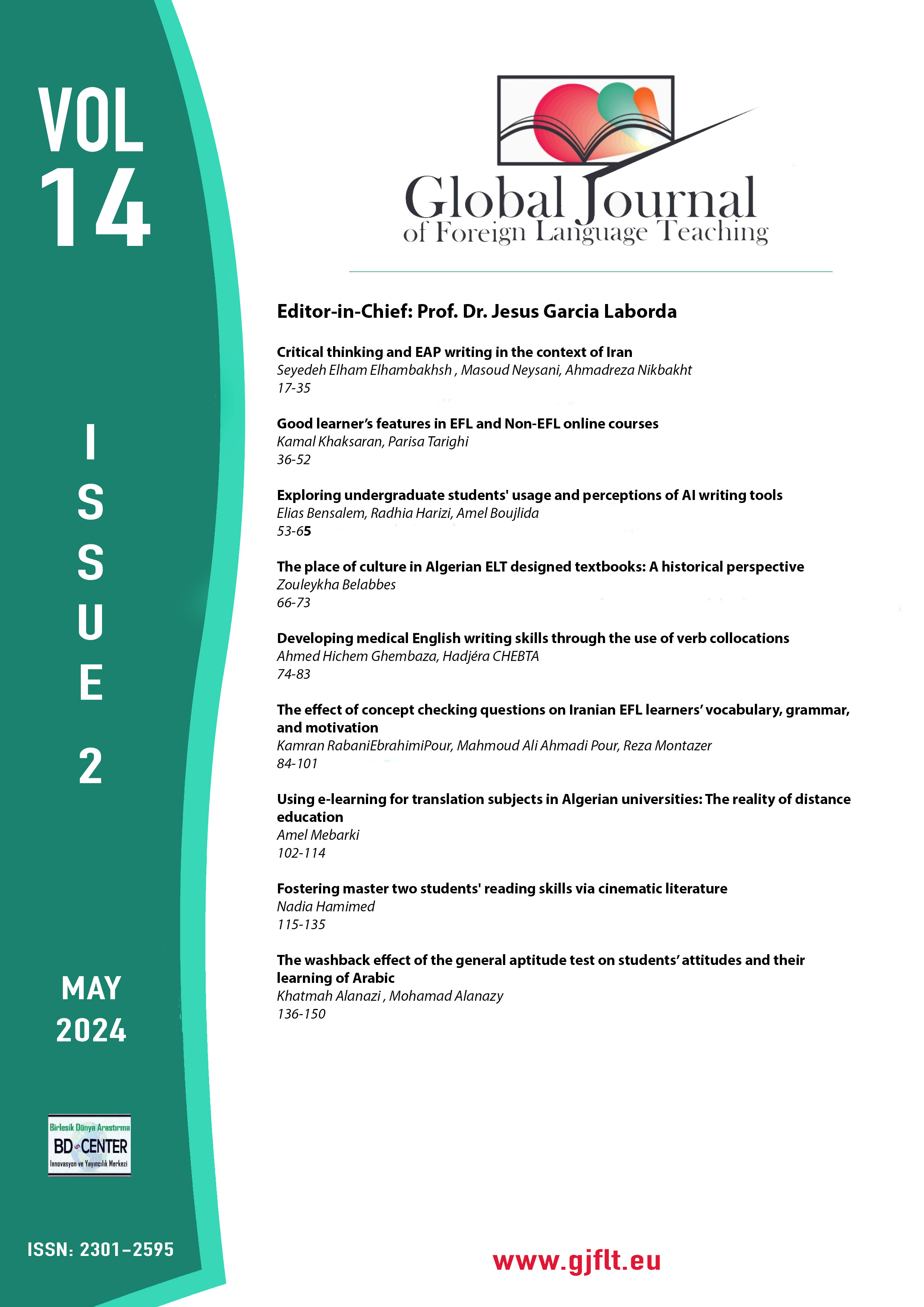Using e-learning for translation subjects in Algerian universities: The reality of distance education
Main Article Content
Abstract
The higher education sector in Algeria continues to shape the future of hybrid (blended) learning. There are certain obstacles associated with teaching certain disciplines, including translation, through virtual classrooms. The current study aims to investigate the reality of online learning at Algerian institutions and ascertain how instructors and students feel about using e-learning platforms for translation-related courses. Two research tools, an interview and a questionnaire, were used to gather and analyze data. The study's conclusions showed that while online learning can be somewhat beneficial, it is not as effective as in-person instruction, especially when it comes to time management and examinations. Additionally, it was shown that both instructors and students encountered difficulties with online learning (OL), including adjusting to the virtual setting and a deficiency in motivation and interaction. The study found that while OL is helpful, it cannot replace in-person instruction. The study therefore suggested hybrid learning, which combines online and in-person training.
Keywords: challenges; online learning; students’ perceptions; teachers’ perceptions; translation subjects.
Downloads
Article Details

This work is licensed under a Creative Commons Attribution-NonCommercial-NoDerivatives 4.0 International License.
Authors who publish with this journal agree to the following terms:- Authors retain copyright and grant the journal right of first publication with the work simultaneously licensed under a Creative Commons Attribution License that allows others to share the work with an acknowledgement of the work's authorship and initial publication in this journal.
- Authors are able to enter into separate, additional contractual arrangements for the non-exclusive distribution of the journal's published version of the work (e.g., post it to an institutional repository or publish it in a book), with an acknowledgement of its initial publication in this journal.
- Authors are permitted and encouraged to post their work online (e.g., in institutional repositories or on their website) prior to and during the submission process, as it can lead to productive exchanges, as well as earlier and greater citation of published work (SeeThe Effect of Open Access).
